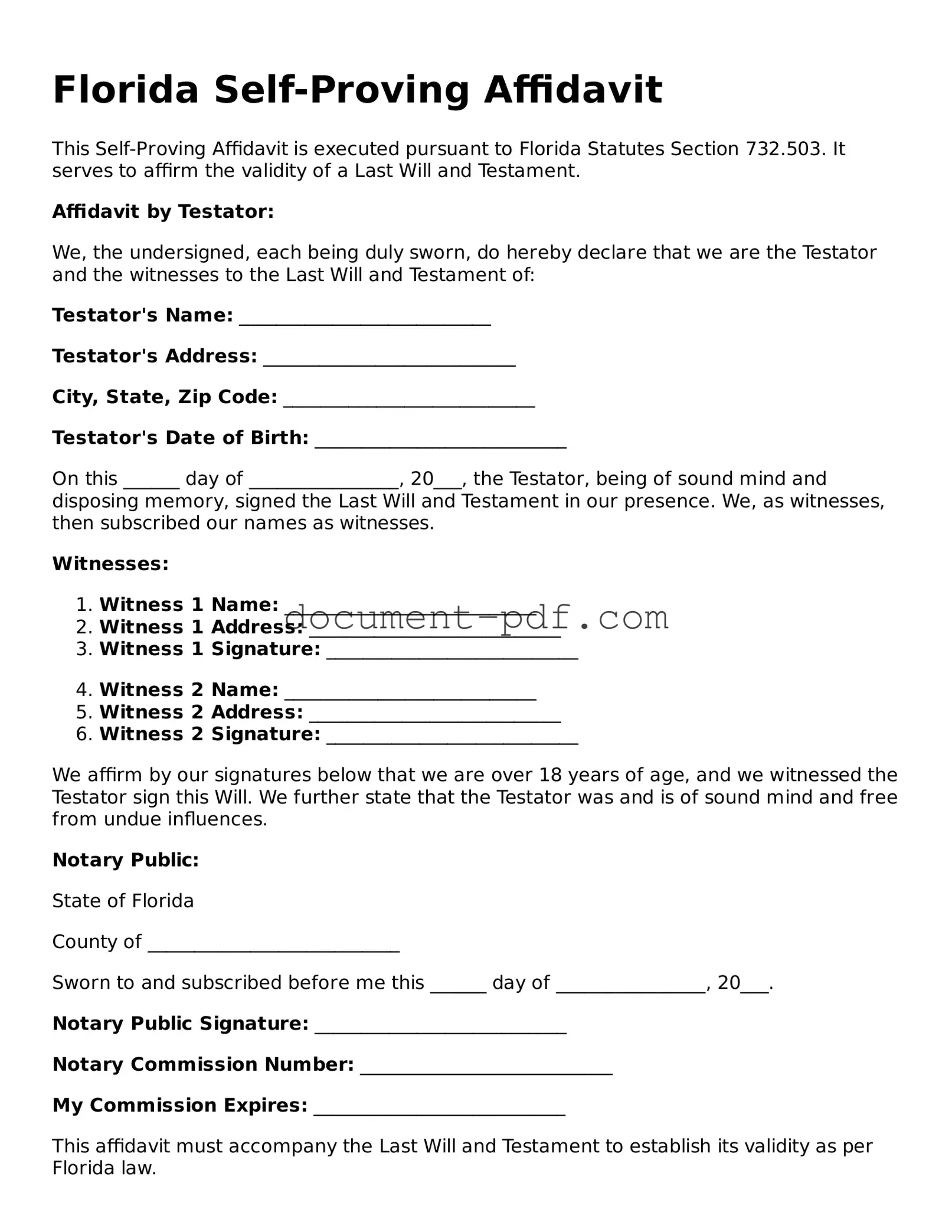Attorney-Verified Florida Self-Proving Affidavit Template
The Florida Self-Proving Affidavit is a legal document that allows a testator's will to be validated without requiring witnesses to appear in court. This form simplifies the probate process by confirming that the will was executed properly. For those looking to fill out this form, click the button below.
Access Self-Proving Affidavit Editor Here

Attorney-Verified Florida Self-Proving Affidavit Template
Access Self-Proving Affidavit Editor Here
Finish the form without slowing down
Edit your Self-Proving Affidavit online and download the finished file.
Access Self-Proving Affidavit Editor Here
or
Click for PDF Form
